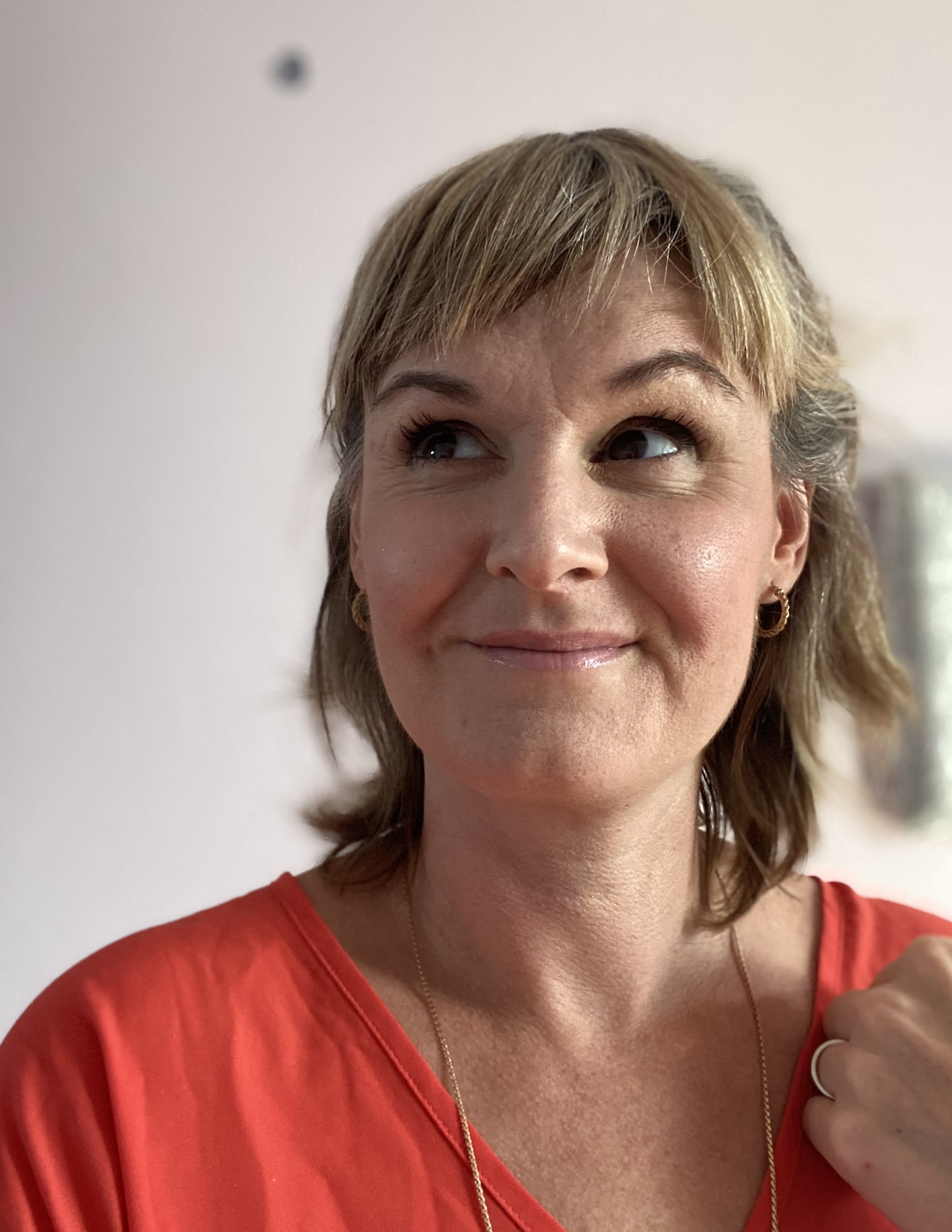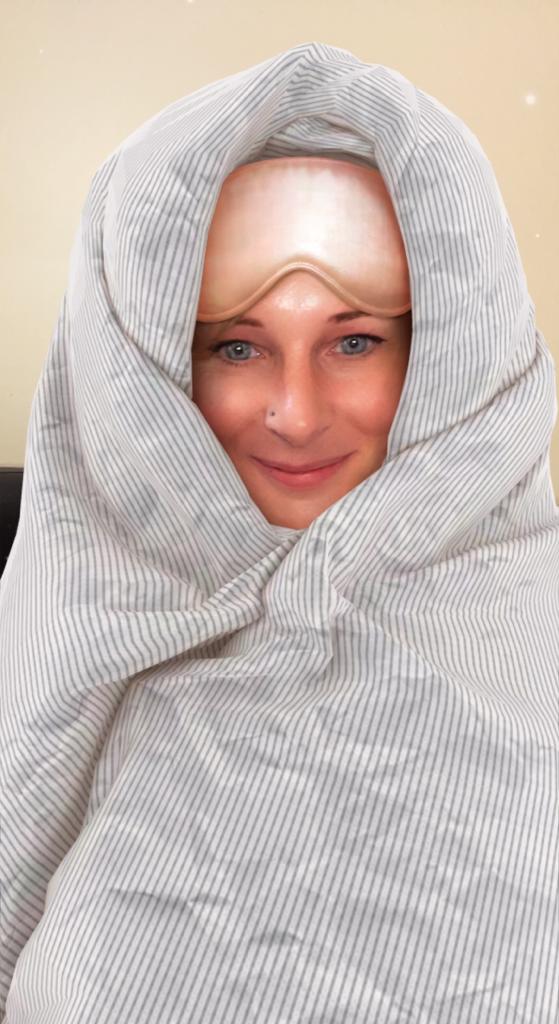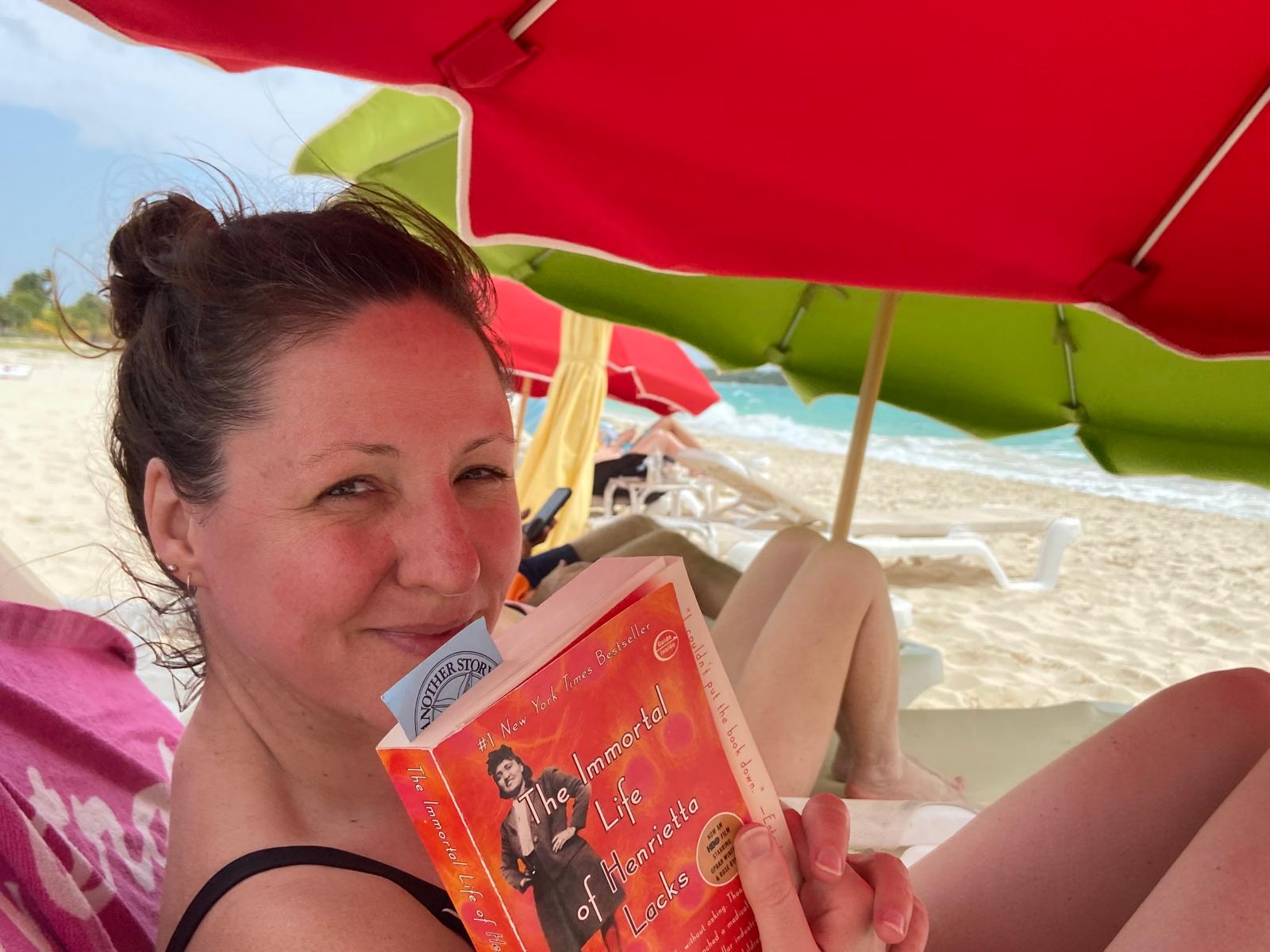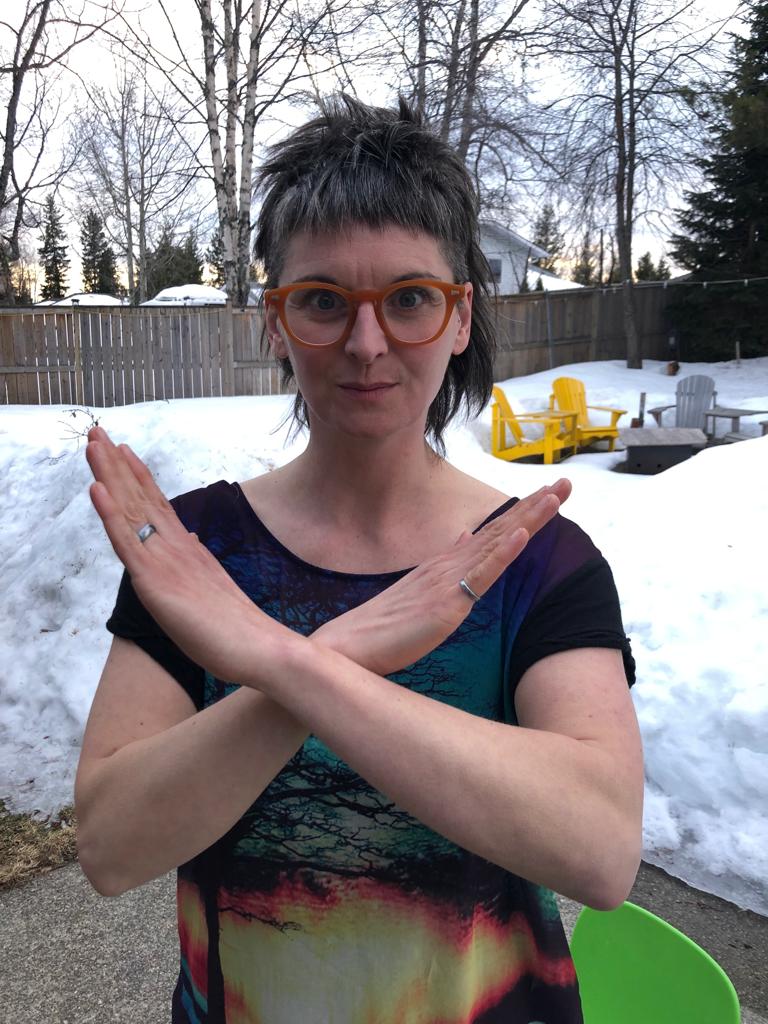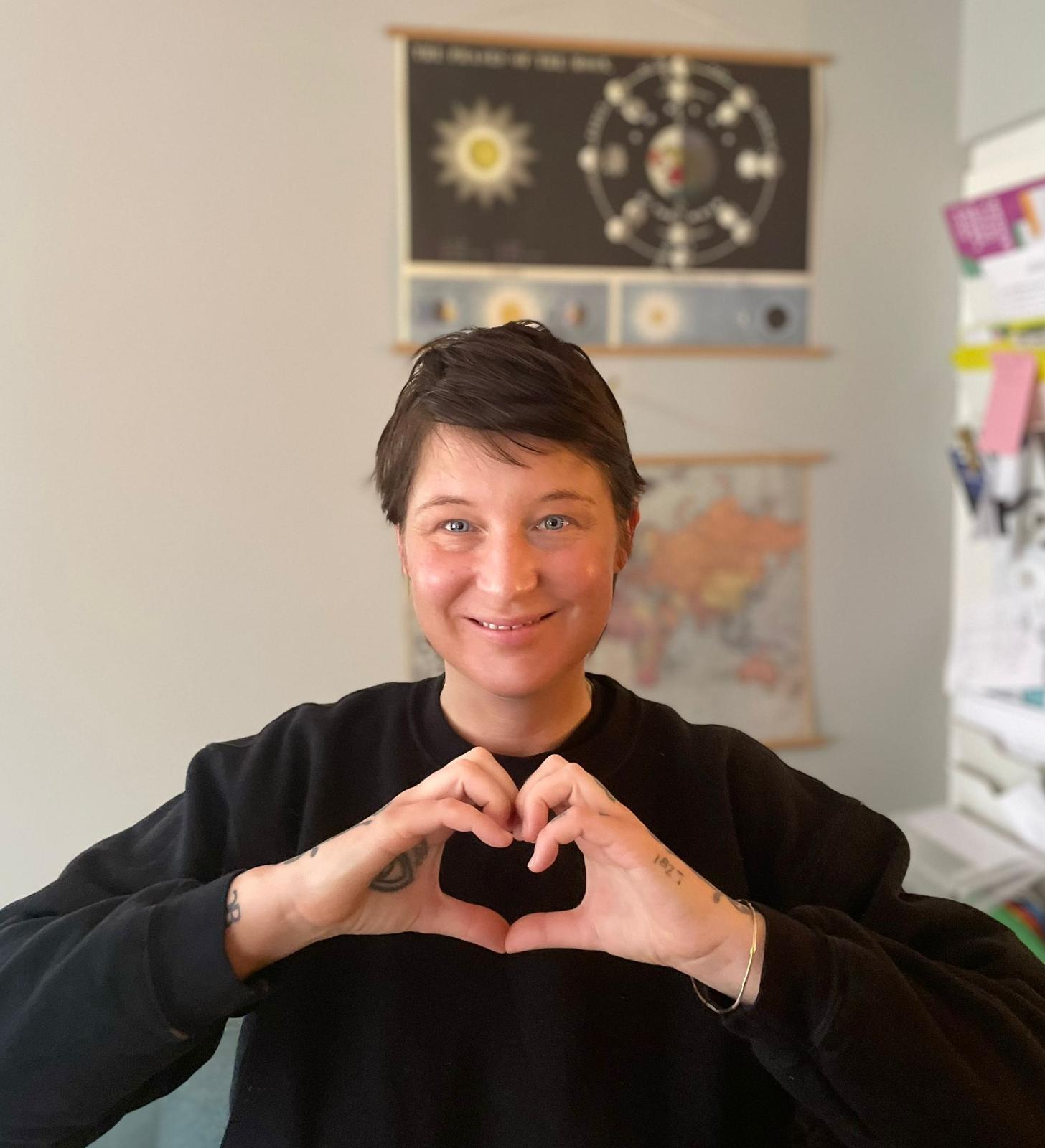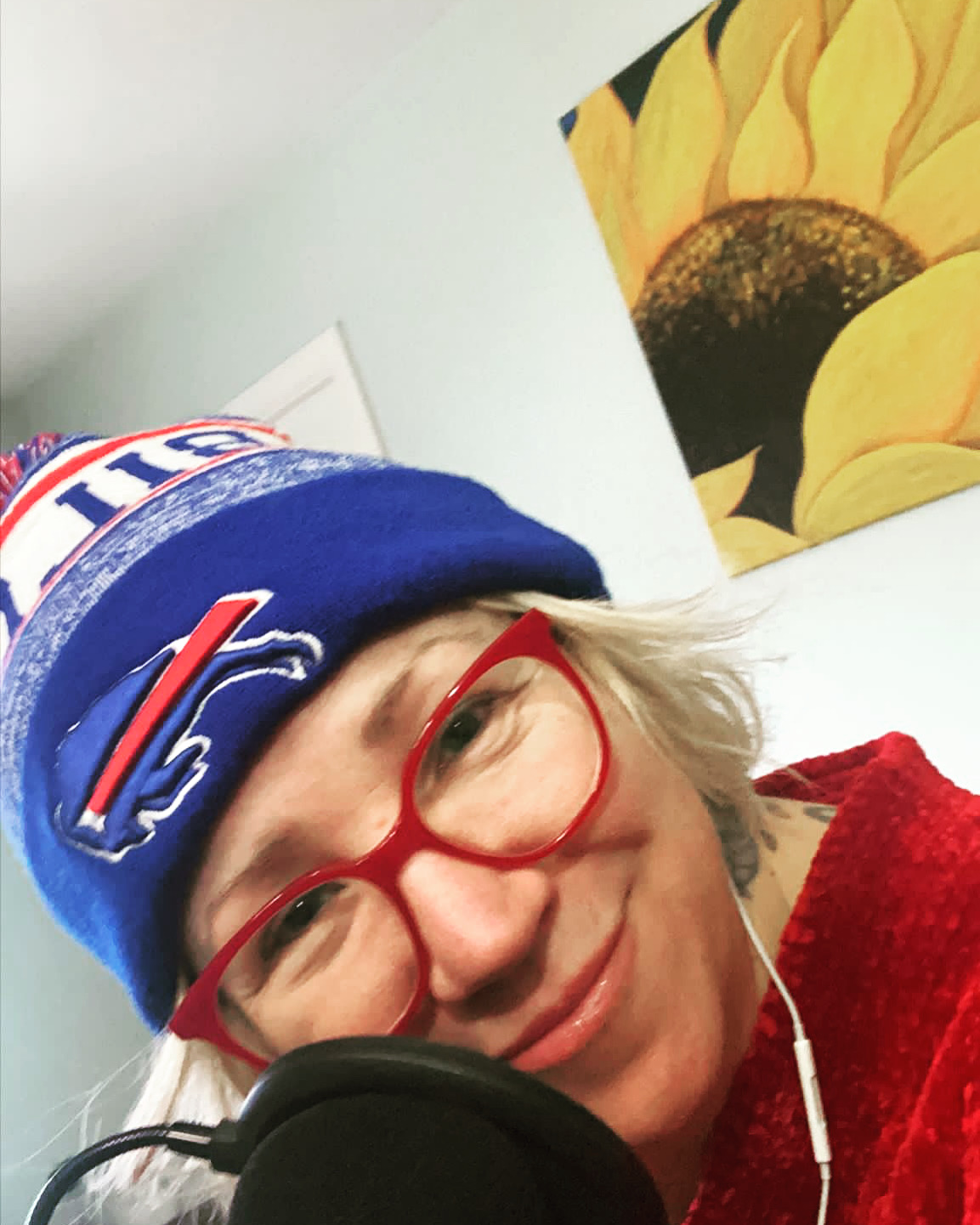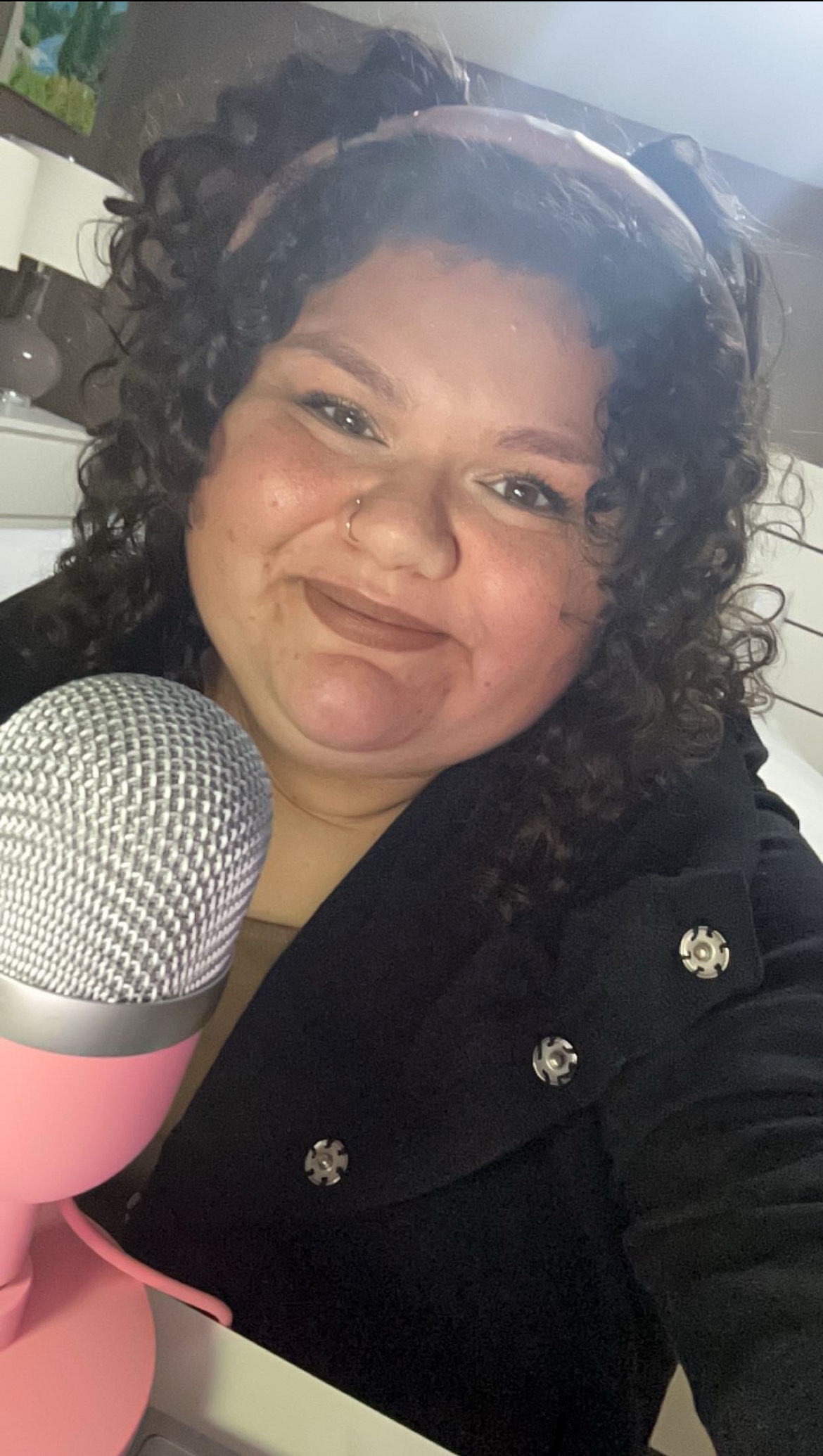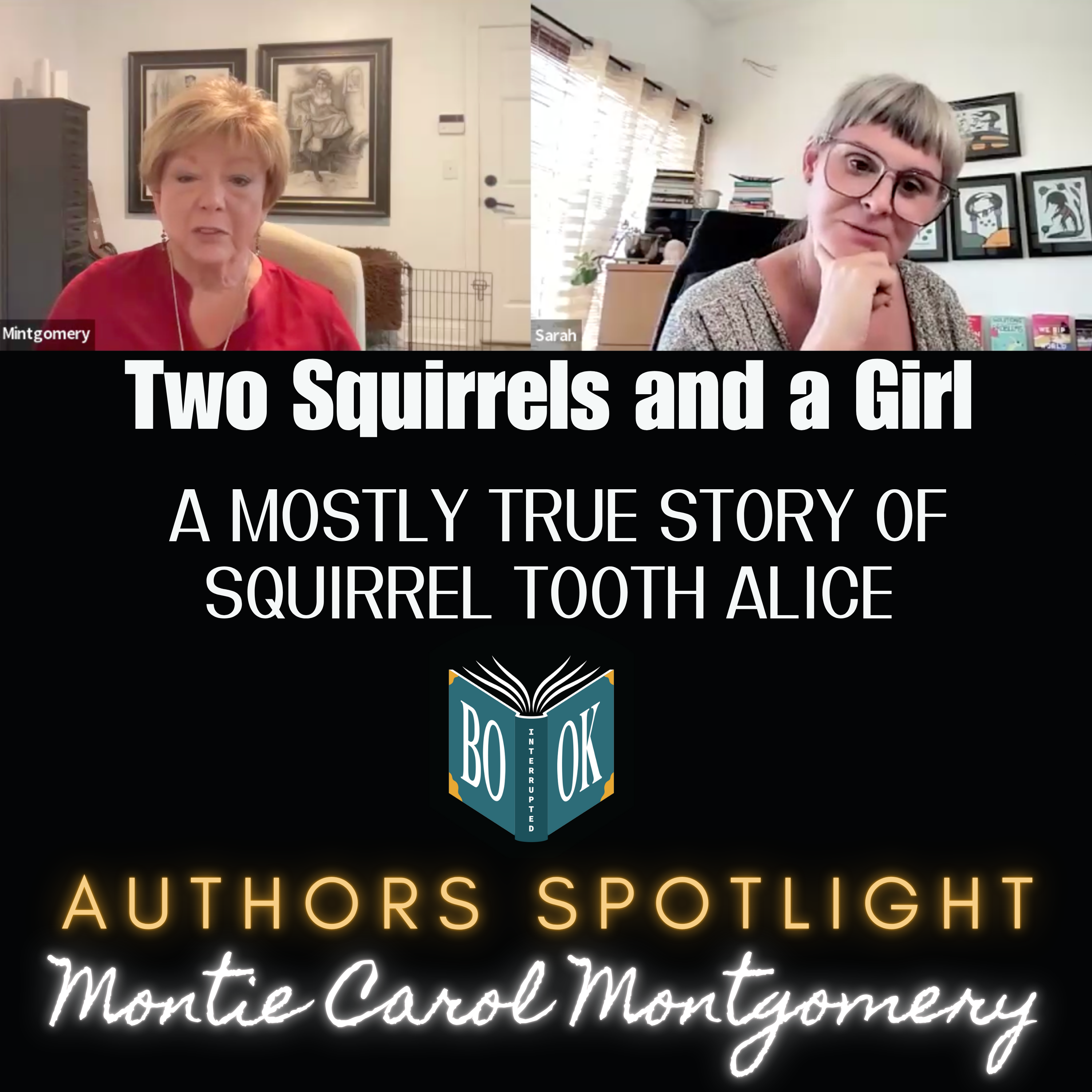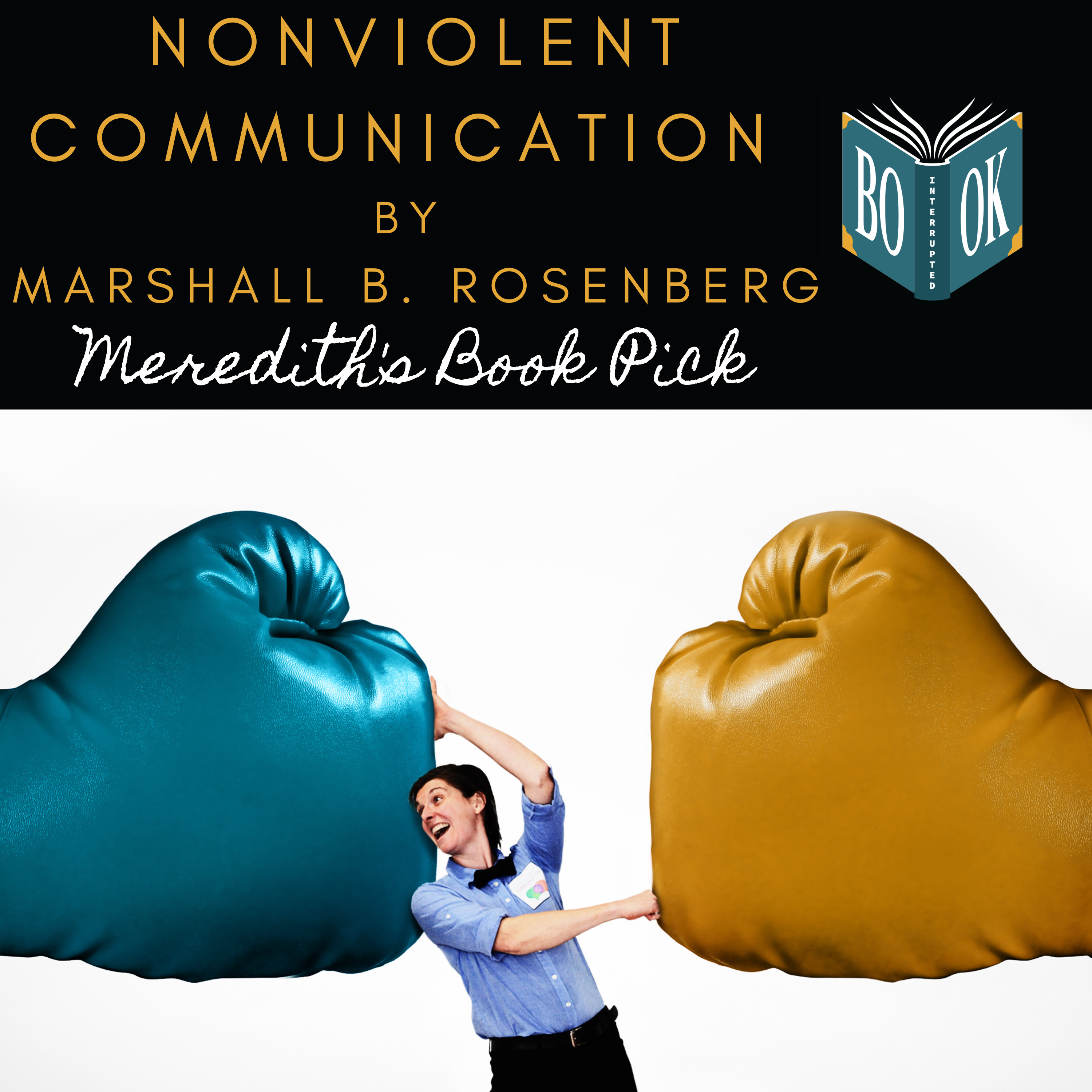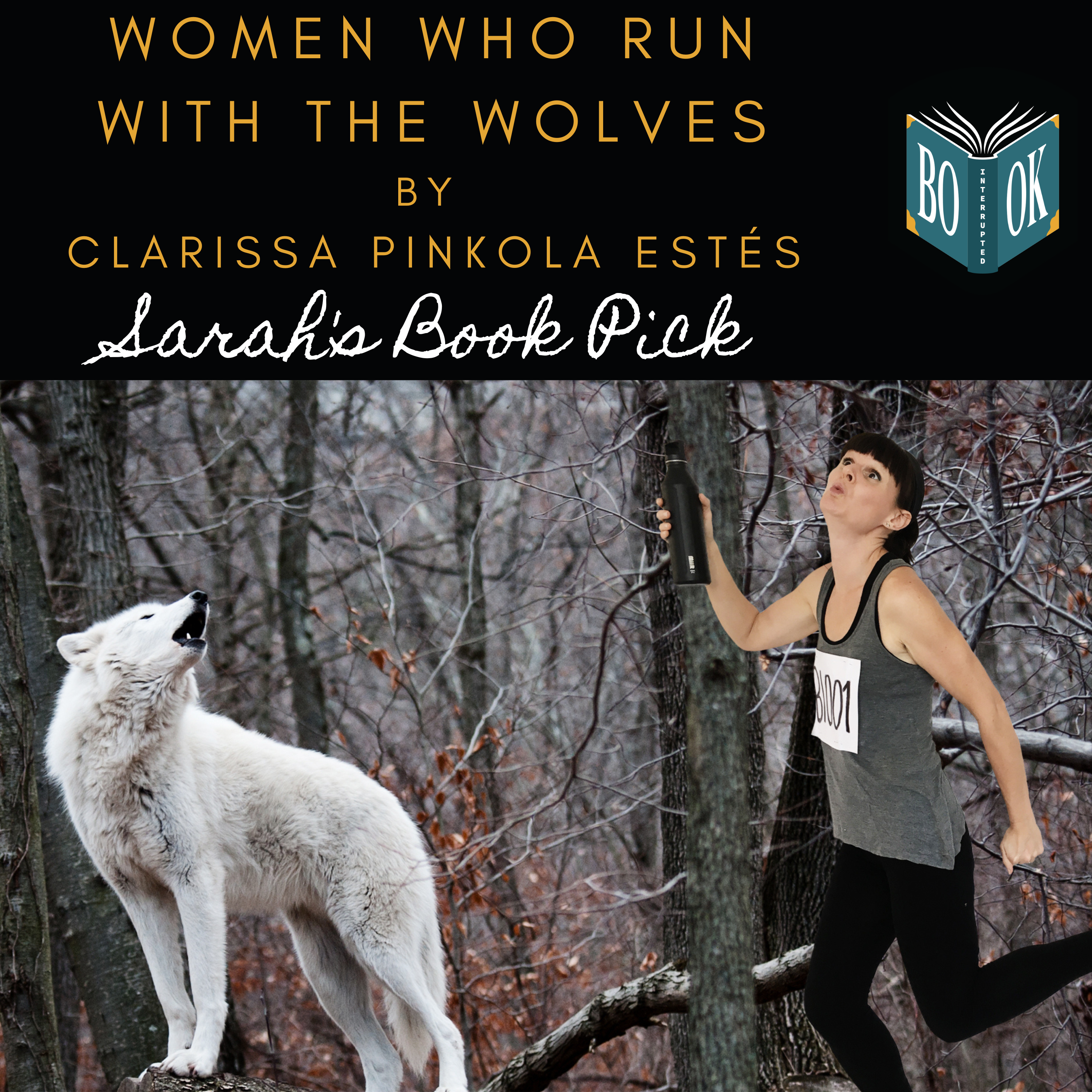Episode Transcript
[00:00:00] Speaker A: Making a great podcast takes money and time, and we rely on our listener support to be able to keep bringing you quality Book Interrupted episodes.
Please consider supporting us in our Patreon account. You can find it by clicking on the Patreon icon at the bottom of all pages of bookinterrupted.com we appreciate you. Thank you for being part of our Book Interrupted community.
[00:00:25] Speaker B: Parental guidance is recommended because this episode has mature topics and strong language.
Here are some moments you can look forward to during this episode of Book Interrupted.
[00:00:36] Speaker C: Our parents didn't want us to know about her, so they never talked about her directly. I mean, they, they dropped hints occasionally that we had some. They called them notorious people. In our lineage, women were kind of.
[00:00:48] Speaker B: Not included in history books. No, because really men wrote history books.
[00:00:54] Speaker C: So reading about Matt Masterson and Wyatt Earp and Doc Holliday because they were friends of theirs, so their names with Billy's and Libby's pop up.
[00:01:03] Speaker B: God, I like that. Also that you, your research included going to someone that was indigenous.
[00:01:08] Speaker C: Yes. They would go with the cattle drives a lot. And if she had a child on the trail, a lot of times there might not be a birth certificate. And you just have to kind of follow it through the rest of the story to find out about those.
[00:01:19] Speaker B: And I think your topic's very relevant right now. I think a lot of people are becoming more aware of the narcissistic personality disorder.
[00:01:26] Speaker C: So the music is fun and a lot of tongue in cheek. A lot of poignant music because a lot of her life was sad.
[00:01:33] Speaker D: Coming soon.
To read a book is the goal.
I wanna learn something new and I don't wanna be disrupted.
Mind, body and soul.
Inspiration is the goal and we're gonna talk it out on book on Book Interrupted.
[00:02:06] Speaker B: Welcome to the authors Spotlight. During these mini episodes, we have authors come on and tell us about their books and why we should read them. Let's listen. Welcome to the Author Spotlight. On this episode, we're interviewing Monte Carroll Montgomery and her book Two Squirrels and a Girl. Thanks for being on the show. Monte Carroll, why don't you let us know why we should read your book?
[00:02:28] Speaker C: Well, first of all, thank you for having me. This is fun. I think the reason that people should read the book is for me, I feel like women in the west were sort of forgotten. There's only a few. If you look at history of the old west and United States, there's only a few women that pop up. You know, Calamity Jane, Annie Oakley, women like that. And there were so many women who underpinned the growth of the west know they were such a big integral part. They all had different roles, but for women, those roles were very limited. It was within certain confines. So, you know, they had to do what they had to do in those days. It was hard, hard life.
When I found out about my great great grandmother, I was an adult. I was. It's only been about, probably 15, 20 years ago. Because of her profession, she was a madam. Our parents didn't want us to know about her, so they never talked about her directly. I mean, they, they dropped hints occ that we had some. They called them notorious people in our lineage, but we never knew exactly as kids what that meant. So when I found out about her, I was immediately intrigued because I really am an advocate for women, Try to help where I can, you know, to lift women up. When I started doing the research for her, it took me about four years. And I was just fascinated by the culture back then and, and what they had to do to survive and the things that they were able to push through to become successful. And so that's why I wanted to tell her story. Not just that she was my great great grandmother and that she was famous and infamous, but that she proves. What I've been saying about women for a long time is that we are resilient, we're strong, we're creative, resourceful, all of those things. But we rarely get the same recognition as men. Don't get me wrong, I'm not a man hater. I just wish we did a better job at lifting up the women who have helped us become who we are.
[00:04:28] Speaker B: I think you're a bit right. Like women were kind of not included in history books.
[00:04:32] Speaker C: No.
[00:04:33] Speaker B: Because really, men wrote history books, so.
Right. So unless it's through word of mouth or if you go back and look at like old newspapers or something, you might see it's not widely known.
All the women who've made an impact in history, right.
[00:04:52] Speaker C: You kind of have to dig for them because they're obscure. It's really hard. You have to do a lot of removing layers like an onion to discover their stories because they are so embedded, so buried behind a man's story. You know, a lot of this research that I did on Libby, which was my grandmother's name, came through reading about Matt Masterson and Wyatt Earp and Doc Holliday because they were friends of theirs. So their names and Libby's names would pop up in their history. And then I could grab that little thread and follow it through. So it was the laborious job. It was one of love, and I enjoyed it. But was not an easy task to uncover her story. Of course, a lot of it was in history, but there are holes that I had to recreate. But even when I did that, I had to study the history around it. You know, for instance, when she was captured by the Indians early in her life, I had to figure out what tribes were in the area, what was going on culturally and socially with those tribes in that area, to figure out who probably took her, you know, what band took her, and. And where was she during that time. And so it was a kind of a sleuthing adventure. You know, I had to kind of do some detective work to. To really figure out what was going on with her.
Thankfully, I had access to some people who could really help me talk through that. One of those being Mo brings plenty. Who is an actor that's on Yellowstone. He's been in a lot of shows. Hell on Wheels. Very, very sweet man. And an advocate for the Native American culture and is involved with them very deeply. He lives in. I think it's North Dakota. Anyway, he helped me talk through it to make sure that what I said happened not only could have happened, but probably did happen that way. So that gave me a lot of peace and confidence that I was telling the story as accurately as I possibly could, which was important to me. I didn't want to just, it's historical, but it's also fiction, because I can't prove every single word of it. It's something I had to develop. But the biggest part of it is true, but I had to flesh it out to make it interesting and to tell her whole story.
[00:07:03] Speaker B: Well, that was one of the questions is going to ask. I've read a little bit of your book, and the first bit in the book says, this is fiction. And I was wondering, because I also knew it was your great great grandmother. So I was like, it's not a biography, but that's why it's fiction, because you had to try to piece together.
But it is your grandmother, great grandmother's story, and you were filling in the history, so that's why it's. You consider it fiction, but it's. It leans toward nonfiction.
[00:07:31] Speaker C: Yes. Yeah, it's historical fiction. But, you know, she was with the Indians for three years and she wouldn't talk about it, but she came back unmarked, which was really unusual to come back at all. But to come back without any scars or marks was really unusual. That happened on both sides. It's not that the Indians were just extremely cruel and for no reason. You know, we were cruel to them, but a lot of times they just didn't make it back. And when they did, they weren't the same on the outside anyway. But she came back home. So we had to figure out what was it about her, what was her gift that made the Native American tribe that she was with say, we don't want to hurt her, we want to incorporate her. Which also sometimes happened. You know, they would basically adopt their captives into their families, but a lot of times they didn't, and they became slaves that were very mistreated. So we had to come up with a scenario that fit her personality, fit her lifestyle, fit her past history that would show a reason why she found favor with that tribe. You had to develop some of that because we don't know from her own words, we wouldn't know because she didn't talk about it.
Something we had to kind of create.
[00:08:42] Speaker B: So the dancing part that was in the book, that's what you assumed, because she loved to dance and love to dance.
[00:08:49] Speaker C: She was very precocious and outgoing and one of those kids that you've been around them, they'll walk into a room and they just kind of light up the room. That's who she was. And so I made the assumption that when they captured her, she was by the river dancing and singing and which she did a lot. There was something about what she was doing that was attractive to them that they liked, that gave her a standing of some kind in the tribe. And that's part of what I talked to Mo about. Would that have been something that would have occurred? And he said yes. So I felt good about the development of that part of the story, that it was possible and more than likely what happened.
[00:09:28] Speaker B: Lovely. I like that. I've read up to about 20% of the book I've read, so I'm in that part right now that I like that also that you, your research included going to someone that was indigenous.
[00:09:40] Speaker C: Yes. I don't want to disrespect them either. You know, that was important. I didn't want to tell a story that was very one sided that would have reflected unfairly on the Native American culture. Because I have some very dear friends, you know, they already have a struggle. And so I didn't want to reject this as being evil. You know, it was just the way things were at that point between the whites and the Native Americans, and we were part of that.
[00:10:06] Speaker B: You mentioned in the book how years before that the treaty wasn't Honored. So then it started, and people were massacred on the indigenous side. So then they started retaliating, and so that makes sense. Yeah. One of the things I thought was interesting in your book was how she got her name Squirrel Tooth Alice.
Right. Because she has pet squirrels.
[00:10:29] Speaker C: She was a character. And she knew enough about what was going on at the time to know that she had to create an identity for herself that would stand out in order to be successful. Because in the old west, towns, prostitutes outnumbered regular women, sometimes 90, 70 to 1. It was a very small number of women who came west who ended up as school teachers and store clerks and, you know, nurses. And then those were pretty much. If you weren't a wife and mother, that's pretty much your choice. I mean, you couldn't do much else. I mean, there you didn't see a lot of doctors and lawyers and that kind of thing. So one of the things she did was it was kind of by happenstance, she came upon this little prairie dog town. There are a lot of them in that part of the world where she was found a little injured. It's called a squirrel, but they really are more like a little prairie dog. They even yip and bark. So became so attached to it that she got another one. She always had two. She never changed their names. They were Fritz and Toots.
[00:11:29] Speaker A: And.
[00:11:29] Speaker C: And one died. She'd get another one, and it became whichever one, you know, did that. She had harnesses built for them and leashes, and she would get all dolled up with her parasol, and she would take these squirrels on a walk through Main Street. And they had first towns that they. They landed in, had the first boardwalks, you know, the wide wooden sidewalks. So she was quite a spectacle, you know, with her high heels and her beautiful dress and parasol, with two squirrels on the leash at some point. But she also had a small gap in her front teeth. Very beautiful woman, but she had a gap in her front teeth. So at some point, some drunken cowboy decided that because of her squirrels and the little gap in her teeth, her name should be Squirrel Tooth. And, well, I don't know where Alice came from. A lot of madams took on fictitious names, I'm sure, to protect their families and themselves. So she. She went by Squirrel Tooth Al as a madam. She did not like being called that by her friends and family. When she and Billy got married, the preacher tried to marry them as Billy Thompson and Squirrel Tooth Alice, and she would not have it. I mean, she was Mary Elizabeth. So that's the name she Wanted on the marriage certificate. But that's how she got the name. And it's really pretty clever because it sticks in your head and it set her apart. And it. To her, it wasn't derogatory. You know, Squirrel Tooth Alice, you think, oh, my goodness, that's a horrible name. But to her, it was just a moniker. Something that set her aside and set her apart. You know, in the industry that she was in, there was like Teacup Tilly. And, you know, they just came up with these silly names that kind of set them out as being special.
[00:13:13] Speaker B: Yeah, it makes me think of the Wild west, too. You know, they always had the nicknames.
[00:13:17] Speaker C: You know, Doc Holliday, you know, he was a dentist, but he went by Doc. You know, he never went by his first name. So they all kind of developed. Especially the women, though, of the west, were more likely to come up with these creative names because they had to fight harder to be seen.
[00:13:32] Speaker B: Yeah. Is this your debut novel?
[00:13:34] Speaker C: Yes.
[00:13:35] Speaker B: That's amazing. So do you have any plans on writing more?
[00:13:39] Speaker C: I actually have another one in the works. I was married many years to a narcissist. I don't know if you know much about that personality disorder, but they're very charming. They are able to create this world that they live in where people see them as something they're. They're not. And it's very damaging to the families. And so I wanted to write about my experience, but I wanted to do it as a story and use humor and examples because I lived through it for years without knowing what I was living through. I didn't know the signs. I didn't know how to recognize it. You know, I'm an extremely. I feel like a strong woman, but I was able to be manipulated and gaslighted. And you ask yourself, why? Because, you know, if you're strong, you don't know how that happens to you. It's so insidious.
So I wanted to tell the story with humor and make it interesting and engaging, but also kind of teach at the same time what the signs are and what you look for. And he was a cowboy. He always prided himself in being the best cowboy out there, and he wasn't.
And so the name that I came up with is the Cowboy who Wasn't. So it's going to tell the story of what it's like to live with someone like him and hopefully spare someone else the pain that you go through when you realize what's going on.
[00:15:02] Speaker B: I just read the book. It's not you.
I don't know if you know this book, it's for people who are the victims of narcissists, not for the narcissist per se. Because most books are describing what a narcissist is.
Just has a little bit of the narcissistic personality, but it then goes into the people they choose and how you can protect yourself. There's lots of people that have to interact with narcissists because they have to. Like they're their father or their uncle or their employer or what have you and how you can manage your child, your child. Exactly. Like you have to try to figure out how to still be in their world but not be victimized. And anyway, it's a very interesting book and I think your topic's very relevant right now. I think a lot of people are becoming more aware of the narcissistic personality disorder. Are you going to make it a fiction like this one? Like going to make it like a story with fiction, but people are learning as they go, or is it going to be a teaching memoir?
[00:16:01] Speaker C: It's going to be fiction because I want it to be an entertaining story. But the characters that I'm developing are real characters. They're real people.
I'm just using different names. I'm. I'm altering it enough to where they don't feel attacked. That's not what I want. But it's enough that they're already partially fleshed out as people. So it's easier to build those characters when you're already starting with something. One of the things I thought was interesting in trying to come up with a way to address this is that he had two blood children, one of which is also a narcissist, and then the other three were adopted. And I thought it was so interesting to look at the nurture versus nature because I mean, the one that is a full on narcissist, she is him in female form is a blood daughter. So, you know, you would expect that to pass on. But the other four have so many narcissistic tendencies just from being raised by a narcissist their whole life. So that was really interesting to me to be able to figure out the difference between a true narcissist and someone that's just been under their influence for 50 years. You know, fascinating to me how close it comes to being the real disorder, you know, but it's not because they actually do have empathy and sympathy and conscience and all of that. And a narcissist is not. They don't.
So anyway, that's where I'm going with that one.
[00:17:26] Speaker B: I like it. So I kind of like how you take. Well, it's really kind of historical. Both of them are historical fiction. It's taking kind of like something that happened and turned it into a fiction story. So it's more in a chaining, but at the same time filling in the gaps, changing names. Right, right. I love that because it makes it more authentic. I think it makes it more not believable. But you didn't mean more true to what someone else could relate to, right?
[00:17:49] Speaker C: Yeah, well, it's something, you know, it's easier to write about, something you already know a little bit about. So I think that makes it easier to do with Libby's story. I just. I wanted to tell her story, but I also wanted to highlight the. The women in history that haven't been highlighted. You know, that Masterson's girlfriend, Molly Brennan, you know, she was pretty famous back in the day, and nobody really has ever heard of her. You know, she was the first grave in the cemetery in Mobility where Libby built her saloon. At the end of her life or toward the end of her career, she was killed saving that Masterson. She jumped in front of the guy that was shooting him and saved his life. But that story doesn't get told.
Even in that Masterstone story, you really have to be looking for her to hear that story. And she's the reason he was walking around for the last 20 years of his life. She was a significant character and nobody knew about her. So those were what I was trying to pull out of history. Where who were these people and how did their lives intersect? How did that change the way we live today? And I think it did change the way we live today completely.
[00:18:59] Speaker B: Your book is really on theme. So this year's theme for Book Interrupted is for women by women, about women.
Because having stories that women are the central character rather than the side characters, it's not as common as you think, which is ridiculous. We're half the population of the world, and where are our stories? Right, right. So it's perfect that you're doing historical fiction about it, because I think as women, we crave knowing the stories of our history.
Not just.
They're not just. We didn't just stay at home and do nothing.
It's just absurd to think that. So I really like that your. Your book highlights the women in history around the time of your great grandmother.
[00:19:47] Speaker C: Right.
[00:19:47] Speaker B: Really like that a lot. Now, I was wondering. So the granddaughter that's trying to extract the stories from her grandmother in the Book, I think her name is. Yeah. Virginia. Virginia. Is it loosely based off your grandmother?
[00:20:04] Speaker C: No. That's an interesting thing. I had already named her Genya. I had an aunt Virginia. Okay. And we always called Virginia. For some reason, that seemed to fit. And I was. One day after I decided her name would be Genya, I was doing some more work on ancestry and happened to read a couple of personal notes that had been posted about Libby by other family members. People I don't know, they're like, you know, third, fourth cousins. And one of them was a little story about a girl, a granddaughter, who helped take care of Libby in her old age because she was living with her dad's family, who was her. Libby's son, and her name was Virginia. And I was so taken aback, and that happened a lot as this developed. There would be things that I would write about and then go back and do more research and realize that I was actually using names that were. It's really strange. I can't really explain it, but I thought that was really interesting that that girl's name was Jenya. Sorry.
[00:21:03] Speaker B: No, I love that. Yeah. That's amazing.
[00:21:06] Speaker C: Yeah. It was a. An exciting day for me because I thought, oh, wow, this is supposed to be her name. You know, this really was someone who interacted with her in her later years. And that's where I found out about. She always drank a. A toddy at night that was mostly whiskey with a little bit of sweet tea in it. They didn't care because it just made her sleepy. And, you know, she got pretty cantankerous in her old age, so they were glad to see her go to sleep.
She's awake.
[00:21:32] Speaker B: You know, My nan liked a hot potty as well.
[00:21:36] Speaker C: Yeah. So it became a part of her story, you know, that she had her sweet tea, but it was actually mostly booze. But I mean, at that age, whatever made her more comfortable, I'm sure, is what they were thinking. She was already pushing 100 at that point, so.
[00:21:50] Speaker B: So how long did she live then?
[00:21:51] Speaker C: She was over 198.
And her daughter, my grandmother, my great grandmother Carrie, lived to be 94. So there's a lot of longevity on that side of the family.
She ended up with. I've forgotten how many people. I think it was like 170 people at her funeral. And I just think that's amazing because I don't know how many older people like that that you've known in your life, but when you go to their funerals, it's just a smattering of family that's left and all of their friends already gone. So, you know, you might have, you know, 15 or 20 people there, but to have that many people show up for her at the end of her life I thought was pretty amazing.
[00:22:29] Speaker B: And then she had 12 kids.
[00:22:31] Speaker C: So you.
[00:22:31] Speaker B: There must be so many relatives when you started doing this research, because 12 children, and then they all have children, and then they all have children.
[00:22:39] Speaker C: Like there's a lot die and not find everybody, but it's okay, you know, we. I just. I did enough to figure out how to piece it all together. You know, a lot of the accounts say she had nine children. I wanted to make sure I was correct. So I actually have the names of every one of her children. The last three they think were with a man that she hooked up with after Billy went away. You know, she sent him away toward the end of her life. He was a scoundrel. He needed to be sent away. But she ended up hooking up with a guy named Mr. Young. And that's all we know about him. We don't have his first name. We have no history on him. All we know is that his name was Mr. Young. She actually, toward the end of her life, took on the name Granny Young. And so they weren't married, we don't think. We never found a marriage certificate, but that we think he fathered three children at the end of her life.
So anyway, you know, it's interesting because there's so many contradictions when you're looking through, and I'm sure you've done research, you know, you'll find three accounts that say this and two that say this. And you have to make a choice on which one fits your story better because they're both historical accounts. You just have to decide which one you think fits the flow of everything else that you've discovered. So it was real important to me. So I went back and found all of their names and their birth dates. A lot of times in her early childbearing years, they were traveling a lot. They were. They would go with the cattle drives a lot. And if she had a child on the trail, a lot of times there might not be a birth certificate. And you just have to kind of follow it through the rest of the story to find out about those. Sometimes there weren't death certificates because of where they might have been at any given time, because some of the little small towns that were just building didn't have courthous houses. And, you know, you couldn't file anything of records. So kind of there are Two or three. I think that I don't have the beginning or the end documents, but I do have all of the names and their birth years. So that to me was kind of a triumph because it proved that I really was right about there being 12 of them.
[00:24:37] Speaker B: So I love that little mystery and digging into history, especially when it's your own. I think that's fascinating. Okay, well, that's all the time we have today.
So, listeners, if you'd like to pick up Monte Carroll's book Two Squirrels and a Girl, you can go to our website at www.bookinterrupted.com shop and look under the author spotlight and her book will be there. Yeah, thanks so much for being on the show. I actually really look forward to reading your book so far. It's extremely fascinating.
[00:25:07] Speaker C: I appreciate. Giving me the time.
[00:25:09] Speaker B: Yes, of course, of course. Thanks. And when you write your next book, when you write that book about the narcissistic cowboy, then, yeah, come back on and we'll do another one.
[00:25:21] Speaker C: Well, I appreciate that. I do want to mention there is A, an 18 song album that goes with the book and it's her story and song and we are doing a documentary about her life and there's also talk of doing a screenplay with the music and the, you know, the book itself. So that's an exciting next step for me before I do the other book releases to get this one completely done and, and do all of it that I can do to bring her to people's attention. So the music is fun and a lot of tongue in cheek, a lot of poignant music because a lot of her life was sad. That's out there too, and it's on Amazon as well. So.
[00:25:58] Speaker B: So listeners, we'll put in the show notes a link to the CD as well.
And if your screenplay becomes like a movie or a show or what have you send me that link too. And I can always update the show notes for that. So listeners, if you're curious and it's not immediate since we put this out, I'll put that down too. I can always update it.
[00:26:21] Speaker C: Thank you.
[00:26:21] Speaker B: Very exciting.
[00:26:23] Speaker C: Is exciting.
[00:26:24] Speaker B: More films and movies about women in history. Great.
[00:26:28] Speaker C: Let's tell our story.
[00:26:29] Speaker B: Yes, I love it.
Okay, great. Thanks for being on the show.
[00:26:33] Speaker C: Thanks, Sarah. Have a great day.
[00:26:35] Speaker B: Thank you for joining us on this episode of Book Interrupted. If you'd like to see the video highlights from this episode, please go to our YouTube channel, book interrupted. You can also find our videos on www.bookinterrupted.com bookies.
[00:26:52] Speaker E: We really want to hear from you. Go to www.bookinterrupted.com to find out the variety of ways you can get in touch. Give us a call and leave a voicemail and we will play it on the podcast or write as an email and we can read it on the podcast.
Or better yet, leave us a review on itunes.
Anything bookies. We want to hear from you.
Pretty please.
Tell us what you like. Tell us what you don't like. Tell us books you think we should read. Tell us about your favorite moments. Tell us anything, please. We want to know what you think. So don't forget, that's www.bookinterrupted.com or iTunes and leave us a review. We will love to hear from you. Talk to you soon.
[00:27:38] Speaker C: Bookies.
[00:27:40] Speaker D: Book Interrupted.
[00:27:42] Speaker E: Never forget Every Child Matters.
